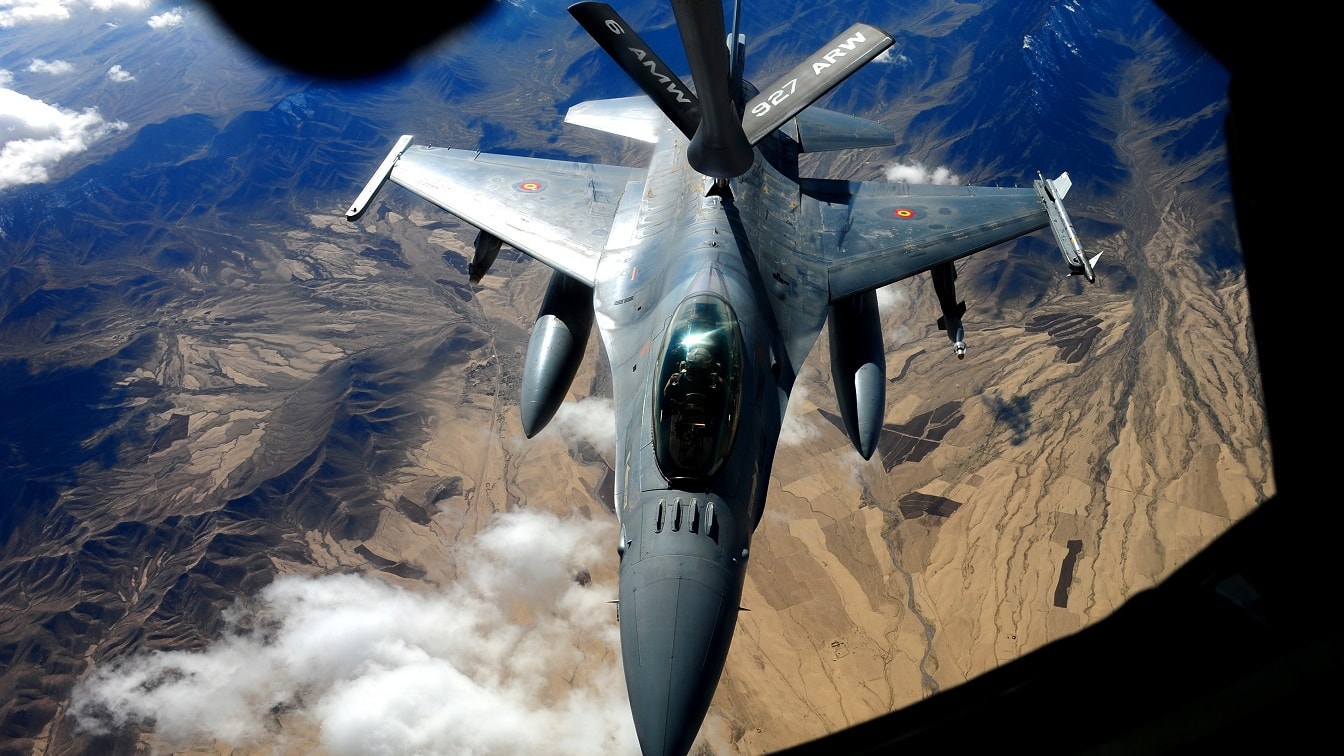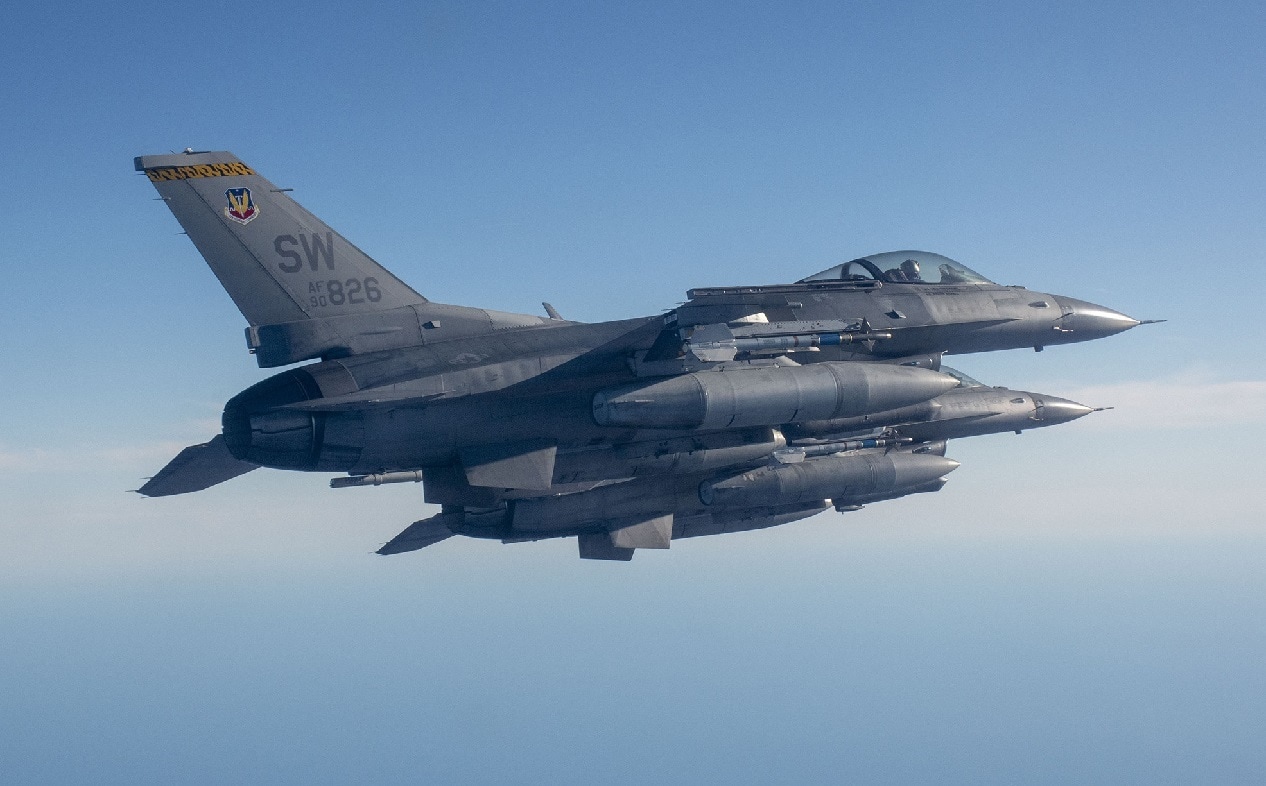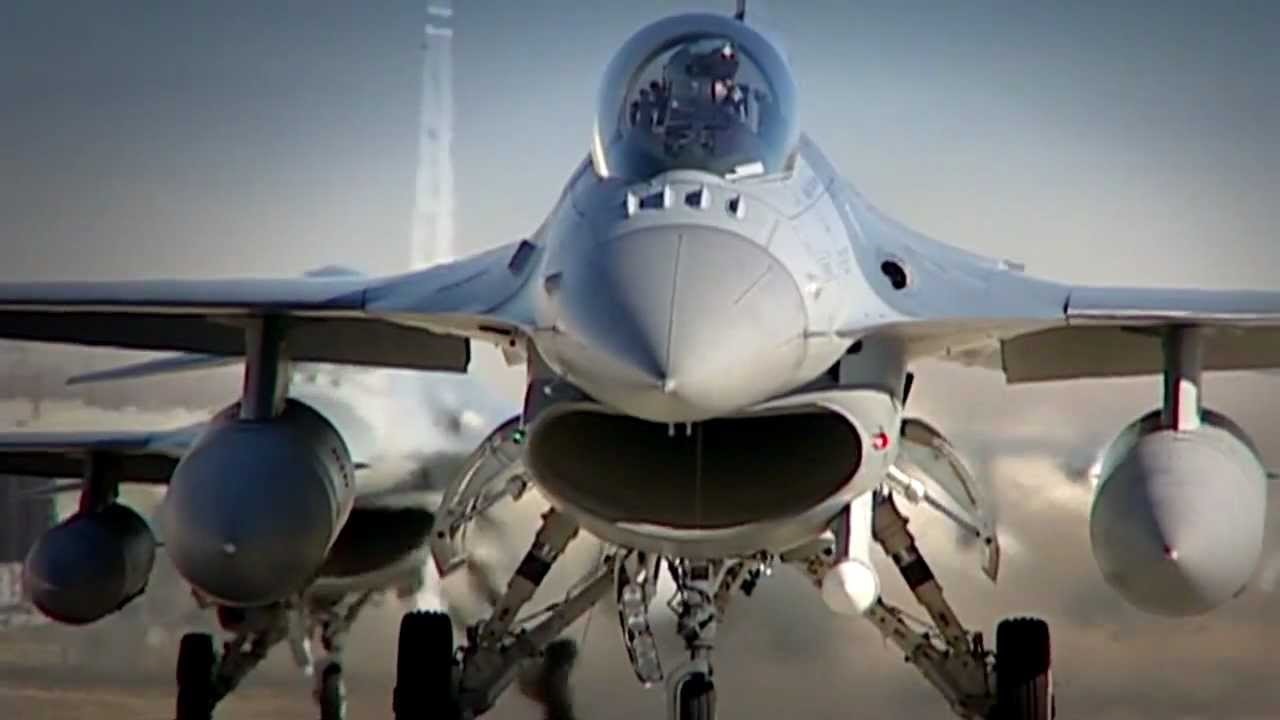Article Summary: Ukraine’s F-16 Fighting Falcons face uncertainty as President Trump temporarily pauses military aid and critical intelligence support to pressure Kyiv toward peace negotiations with Russia.
Key Point #1 – Though effective against drones, missiles, and ground targets, F-16s require continued U.S. maintenance, spare parts, and electronic warfare systems to stay operational. Trump’s strategy could disrupt these capabilities, compelling Ukraine to rely on French Mirage 2000 jets as an alternative.
Key Point #2 – However, American aid is likely to resume soon, especially after upcoming diplomatic talks. Trump’s message to Zelensky remains clear: U.S. support isn’t unconditional, and peace negotiations must be prioritized to end the war in Ukraine.
Why Ukraine’s F-16 Fighting Falcons Could Face Grounding
Are F-16 Fighting Falcons used by Ukraine going to become an endangered species? President Donald Trump has placed a pause on military aid and intelligence data once offered to Ukraine in spades.
Now the Ukrainian air force is wondering if it will receive spare parts and other components from the United States to keep the F-16s in the air. The Ukrainians may also become plagued by a lack of intelligence information needed to keep crushing ground targets and shooting down enemy drones and missiles.
The Ukrainians Need U.S. Assistance to Keep the F-16 Flying Regularly
Volodymyr Zelensky asked for F-16s in the early days of the war, and his air force finally received the warbirds in 2024.
Ukraine’s allies could potentially send more F-16s to Zelensky’s forces, but they would still need support from the United States. The Americans have trained F-16 pilots and given assistance on maintenance and the logistical aspects to allow the airplanes to conduct combat missions.
Trump could also stop NATO allies from sending additional fighters to Ukraine, although he has not specifically signaled he would do so. Ukraine’s European partners required the green light from the Joe Biden administration to receive the F-16s last year. The Americans were earlier hesitant to send the Fighting Falcons because they did not want to antagonize Vladimir Putin further with an escalation of the war.
Trump is playing hard ball with Zelensky to convince the Ukrainian leader to enter into a ceasefire and peace negotiations with Putin to end the war that is going on its fourth year.
F-16s Are An Important Piece of the Ukrainian Fleet
F-16s have done a good job in Ukraine so far. Peter Layton, a fellow at the Griffith Asia Institute and a former Royal Australian Air Force officer, said Ukraine’s F-16s have shot down “numerous drones and cruise missiles.”
Layton further stated that the F-16s have been effective at ground strikes to destroy targets near the frontlines.
While the Vipers do not have the numbers to sway the balance in the war, they are effective at air policing and keeping the Homeland defended.
More F-16s could further help with making sure that no drones and missiles endanger Ukrainian military and civilian targets.
However, without intelligence data, the F-16s may have difficulty conducting those types of missions. Trump has considered lifting the intelligence ban, but it still remains in effect. The president believes this type of leverage and pressure can stop the fighting.
Electronic Warfare System Needs U.S. Support
One specific system that needs U.S. assistance is the AN/ALQ-131 electronic countermeasures pods. These allow the F-16s to conduct missions without succumbing to Russia air defenses and radars. When short of jamming capabilities, it is too dangerous to fly the F-16 near the battlefield for close air support to keep the Russians at bay.
Mirage 2000 Fighter Jets Are Available
Another way that the Ukrainians are coping with the diminishment in F-16 capabilities is to depend on the French-supplied Dassault Mirage 2000 fighter jets. These fourth-generation airplanes do not need American assistance as the French have stepped up to fill the void. The Mirage 2000s have their electronic warfare countermeasures that do not require U.S. support.
While there is a concern with the F-16s, Trump will likely end the intelligence pause later this week as the Americans meet with Ukrainian officials in Saudi Arabia over the next few days.
The F-16s should then be in business. The stoppage in spare parts and support for the jamming pods is a bigger problem, but Ukrainian negotiators will likely bring this up to their American counterparts in talks. The Trump national security team is probably already aware of the issues with the F-16s and will likely order support to the Fighting Falcons to continue after this pause.
No Blank Checks from This Administration
The Ukrainians are learning that the United States will no longer give a blank check to Zelensky, and some weapons systems may be hobbled until the Americans are satisfied that the Ukrainians are serious about peace.

A Belgian F-16 Fighting Falcon receives fuel from a KC-135 Stratotanker, assigned to the 340th Expeditionary Air Refueling Squadron, while flying over Afghanistan in support of Operation Enduring Freedom, Feb. 25, 2011. (U.S. Air Force photo/Master Sgt. William Greer)
The fighter issues will be resolved eventually, but Kyiv must understand that American assistance comes with strings attached.
The Pentagon will likely make American support for F-16s available soon, though. Until then, the Ukrainians can keep the F-16s from conducting ground strike missions and allow them to continue policing the air for drones and enemy missiles.

TYNDALL AIR FORCE BASE, Fla. – A pair of F-16C Fighting Falcons assigned to the 79th Fighter Squadron participate in the 53rd Weapons Evaluation Group’s Weapons System Evaluation Program East 22.02, hosted at Tyndall Air Force Base, Fla., Nov. 16, 2021. WSEP tests and validates the performance of crews, pilots, and their technology to enhance readiness for real-world operations.
They can still fly without the jamming pods for general defensive purposes. Ukraine can use the Mirage 2000s instead if the F-16s must be grounded. What’s clear is that Zelensky is getting the message that Trump wants him to stop this war immediately.
About the Author: Dr. Brent M. Eastwood
Brent M. Eastwood, PhD is the author of Don’t Turn Your Back On the World: a Conservative Foreign Policy and Humans, Machines, and Data: Future Trends in Warfare plus two other books. Brent was the founder and CEO of a tech firm that predicted world events using artificial intelligence. He served as a legislative fellow for U.S. Senator Tim Scott and advised the senator on defense and foreign policy issues. He has taught at American University, George Washington University, and George Mason University. Brent is a former U.S. Army Infantry officer. He can be followed on X @BMEastwood.

